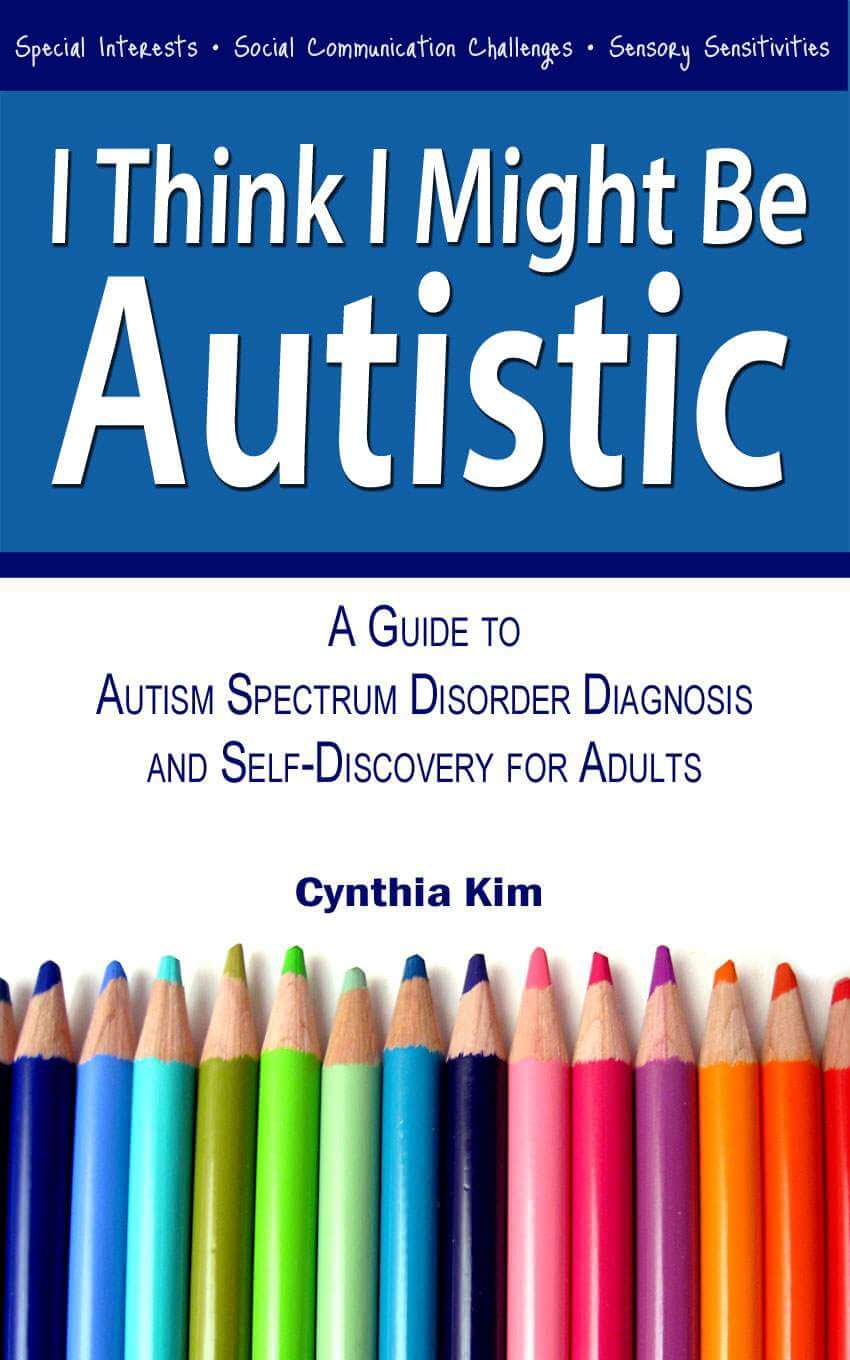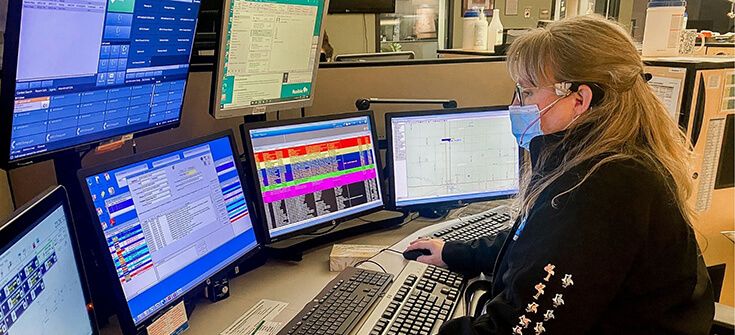The Impact Of Adult Autism Diagnosis: A Guide To Support And Resources

Table of Contents
The Emotional Impact of an Adult Autism Diagnosis
Understanding the Rollercoaster of Emotions
An adult autism diagnosis often triggers a whirlwind of emotions. The initial reaction can vary widely, from profound relief at finally understanding oneself to overwhelming sadness, anger, or confusion. It's essential to acknowledge and process these feelings, allowing yourself time to adjust to this new understanding.
- Relief: Finally having answers to long-standing struggles and difficulties.
- Sadness: Grief over lost opportunities or missed connections due to a lack of earlier understanding.
- Anger: Frustration with the healthcare system or past experiences of misunderstanding.
- Confusion: Uncertainty about the future and how to integrate this diagnosis into one's life.
Processing these complex emotions is crucial. Consider journaling, talking to a therapist, or joining a support group for individuals with autism.
Coming to Terms with Your Identity
Integrating an adult autism diagnosis into your self-image is a personal journey. Self-acceptance is key to building self-esteem and moving forward positively. This process might involve exploring your autistic traits, understanding your strengths, and challenging negative self-perceptions.
- Focus on your strengths: Identify your unique talents and abilities, often amplified by autistic traits like hyperfocus and attention to detail.
- Challenge negative thoughts: Replace self-criticism with self-compassion and understanding.
- Join a support group: Connecting with others who share similar experiences can provide validation and encouragement.
- Seek professional guidance: A therapist specializing in autism can provide valuable support and strategies for self-acceptance.
Grief and Loss Associated with Late Diagnosis
A late diagnosis can bring feelings of grief and loss. This might stem from missed opportunities for support, misunderstandings in past relationships, or a sense of lost time. It's important to acknowledge this grief and allow yourself to process it healthily.
- Acknowledge your feelings: Allow yourself to grieve the experiences you've missed or the challenges you've faced without understanding.
- Seek professional support: A therapist can help you process these feelings of loss and develop coping mechanisms.
- Focus on the present and future: While acknowledging the past, concentrate on building a positive future based on your newfound self-understanding.
- Practice self-compassion: Be kind to yourself and remember that you are not alone in experiencing these emotions.
Social Impacts and Relationships
Navigating Social Interactions
Social interactions can be challenging for many autistic individuals. Communication difficulties, such as misunderstanding social cues or struggling with nonverbal communication, can impact relationships. However, there are strategies to improve social interactions and communication.
- Active listening: Pay close attention to what others are saying, both verbally and nonverbally.
- Clarifying communication: Don't hesitate to ask for clarification if you're unsure about something.
- Social skills training: Participate in workshops or therapy sessions focusing on improving social skills.
- Developing communication strategies: Learn techniques to express your needs and preferences clearly and effectively.
Impact on Existing Relationships
An adult autism diagnosis can significantly impact existing relationships. Open and honest communication is crucial for helping loved ones understand your experiences and needs.
- Communicating your diagnosis: Share your diagnosis with your loved ones in a way that feels comfortable and safe.
- Managing expectations: Be prepared to educate others about autism and manage their expectations.
- Couples counseling or family therapy: Professional guidance can help improve communication and understanding within relationships.
- Building empathy: Encourage your loved ones to learn more about autism and develop empathy for your experiences.
Building Supportive Connections
Building new supportive connections is vital after an adult autism diagnosis. Finding a community of understanding individuals can provide invaluable support and reduce feelings of isolation.
- Support groups: Connect with others facing similar challenges through local or online support groups.
- Online communities: Engage in online forums and communities dedicated to autism.
- Mentors: Seek out mentors who have navigated similar experiences and can offer guidance.
- Autistic-led organizations: Find support and advocacy through organizations specifically run by autistic individuals.
Practical Implications and Resources
Accessing Support Services
Numerous resources are available to support individuals with autism. Seeking professional help is a crucial step in managing the challenges and maximizing your potential.
- Therapists specializing in autism: Find therapists experienced in providing support and guidance for autistic adults.
- Occupational therapists: Occupational therapy can help develop practical life skills and strategies for managing daily challenges.
- Support organizations: Numerous organizations offer resources, support groups, and advocacy services for autistic individuals. (Examples: [Insert relevant links to organizations here])
Workplace Accommodations and Support
Many workplaces can provide reasonable accommodations to support autistic employees. Advocating for your needs and understanding your rights is crucial.
- Reasonable accommodations: This might include flexible work arrangements, noise-reducing headphones, or adjustments to work tasks.
- Relevant legislation: Familiarize yourself with relevant legislation protecting the rights of individuals with disabilities (e.g., the Americans with Disabilities Act in the US).
- Job seeking support: Organizations offer assistance with job searching and navigating the employment process for autistic individuals.
Financial Assistance and Resources
Therapy, medication, and other support services can be expensive. Explore available financial assistance programs to lessen the financial burden.
- Government programs: Investigate government-funded programs that provide financial assistance for individuals with disabilities.
- Charities and foundations: Many charities and foundations offer financial assistance for autism-related expenses.
- Insurance coverage: Understand your health insurance coverage for autism-related services.
Conclusion
An adult autism diagnosis presents unique challenges and opportunities. The emotional, social, and practical impacts can be significant, but with the right support and resources, a fulfilling life is attainable. Remember that you are not alone, and a wealth of support is available. Navigating the complexities of an Adult Autism Diagnosis can be challenging, but with the right support and resources, a fulfilling and meaningful life is within reach. Start your journey towards understanding and acceptance today. Seek professional help, join a support group, and utilize the resources mentioned in this article to begin building a brighter future.

Featured Posts
-
 Bruno Fernandes Tottenham Transfer What Happened And Why
May 30, 2025
Bruno Fernandes Tottenham Transfer What Happened And Why
May 30, 2025 -
 Manitoba Invests In Advanced Care Paramedics For Rural And Northern Communities
May 30, 2025
Manitoba Invests In Advanced Care Paramedics For Rural And Northern Communities
May 30, 2025 -
 Prehled Vitezu Souteze Stavba Roku Inspirace Pro Budouci Projekty
May 30, 2025
Prehled Vitezu Souteze Stavba Roku Inspirace Pro Budouci Projekty
May 30, 2025 -
 Potential Loss Of Canadas Measles Elimination Status By Fall
May 30, 2025
Potential Loss Of Canadas Measles Elimination Status By Fall
May 30, 2025 -
 Indian Cities And Urban Heat The Need For Advanced Building Materials
May 30, 2025
Indian Cities And Urban Heat The Need For Advanced Building Materials
May 30, 2025
Latest Posts
-
 One Night Only Brandon Inge Returns To Kalamazoo Baseball
May 31, 2025
One Night Only Brandon Inge Returns To Kalamazoo Baseball
May 31, 2025 -
 Thursday March 27 2025 5 Key Things You Need To Know
May 31, 2025
Thursday March 27 2025 5 Key Things You Need To Know
May 31, 2025 -
 Tigers Open Road Trip Against Twins This Friday
May 31, 2025
Tigers Open Road Trip Against Twins This Friday
May 31, 2025 -
 Kalamazoo Baseball Brandon Inges Special Guest Appearance
May 31, 2025
Kalamazoo Baseball Brandon Inges Special Guest Appearance
May 31, 2025 -
 Detroit Tigers Notebook Meadows Rehabilitation Progress And Potential Return Date
May 31, 2025
Detroit Tigers Notebook Meadows Rehabilitation Progress And Potential Return Date
May 31, 2025
